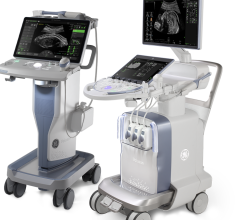March 7, 2013 — The American Society of Echocardiography (ASE) has released a list of five interventions whose appropriateness physicians and patients should discuss as part of Choosing Wisely, an initiative of the ABIM Foundation, along with Consumer Reports. First in the list, they ask that patients and their doctors talk about the real need for additional echocardiograms when there are only minor signs of heart valve leakage.
Do not order follow up or serial echocardiograms for surveillance after a finding of trace valvular regurgitation on an initial echocardiogram.
As access to healthcare information has become more readily available to concerned patients, a growing number of doctors have become involved in evaluating, ordering and caring for patients with a wider range of heart health problems rather than sending them directly to a specialist to follow these issues. Additionally, the technology associated with medical testing has improved and miniaturized, leading to increased utilization of echocardiography to quickly and painlessly evaluate the patient’s heart. With the increase in testing and improvements in technology, it is now common for physicians to find trace valve regurgitation, or leakage, that in the past no one would have been aware was present. This may lead to anxiety, misleading results and more questions for a patient who has a limited understanding of echo reporting.
Trace regurgitation is a very mild leak of a heart valve, which occurs when a valve does not close tightly, allowing blood to leak backward in your heart. Nearly all of the normal population will have a finding of some trivial or mild degree of regurgitation of one, two or three heart valves on a normal echocardiogram. This is sometimes called “physiologic” regurgitation by the doctor interpreting the echocardiogram. In most cases, a doctor, used to seeing these types of patients, will not even mention this finding to the patient as a way of avoiding the anxiety associated with this disclosure, which would be an essentially normal finding in most patients.
Trace, physiologic, and in most cases, mild regurgitation of the mitral, tricuspid or pulmonic valve reported on an echocardiogram requires no immediate or long term follow up. Following up on these findings with additional testing should only be done if you and your doctor believe you have signs and symptoms of the leakage progressing or getting worse. These signs may include a murmur (an abnormal sound when the doctor listens to your heart), fatigue, chest pain, shortness of breath, or extra, or funny, heart beats.
If a patient has trace regurgitation of the aortic valve, their doctor may choose to follow the regurgitation with future echocardiograms and additional physical examinations.
The goal of Choosing Wisely is to promote conversations between physicians and patients about utilizing the most appropriate tests and treatments and avoiding care that may provide no benefit.
ASE’s testing cardiovascular care scenarios were chosen based on the highest likelihood of improving patient care and reducing inappropriate test use. Leaders in the organization transformed the scenarios into plain language and produced the clinical explanations for each procedure. In particular, ASE’s cardiovascular care experts, reviewed the ACCF/ASE/AHA/ASNC/HFSA/HRS/SCAI/SCCM/SCCT/SCMR 2011 Appropriateness Use Criteria for Echocardiography (AUC), which was published in March 2011.
ASE encourages all medical professionals engaged in cardiovascular care to read the
“Five Things Physicians and Patients Should Question” lists at www.choosingwisely.org, and to engage their patients in conversations about reducing inappropriate tests and procedures with a goal of improving care and avoiding harm.
Consumer Reports, along with a coalition of consumer partner organizations, is also a part of the Choosing Wisely effort and is working with many of the societies to help patients understand the tests and treatments that are right for them.
For more information: www.asecho.org, www.choosingwisely.org


 March 19, 2025
March 19, 2025 








